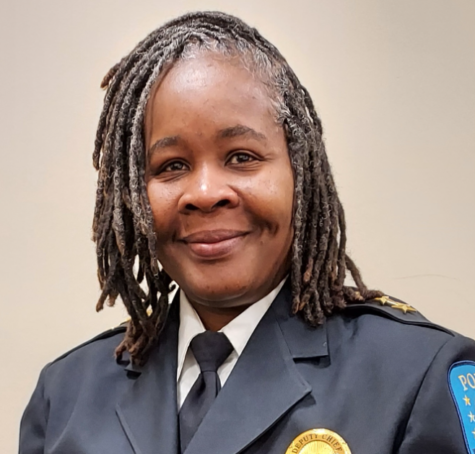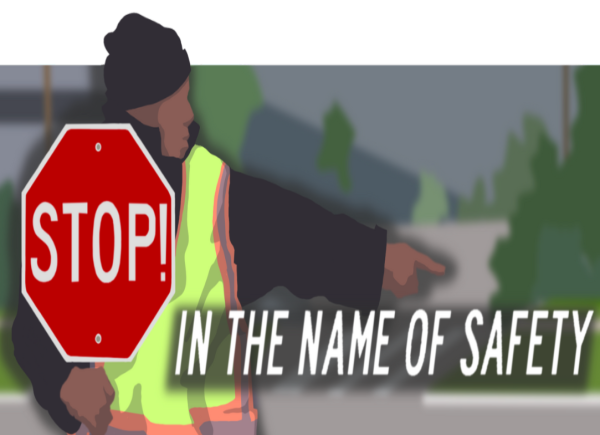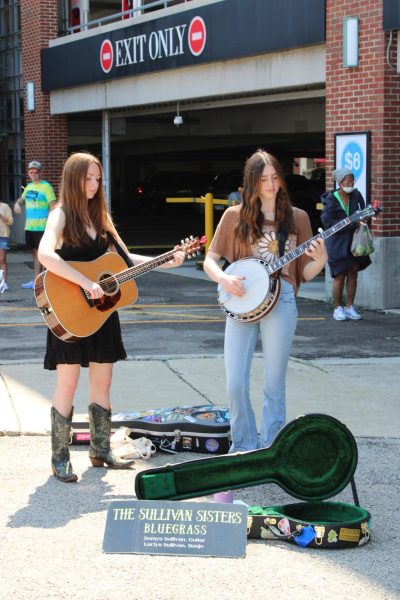New police chief aims to build partnership with residents

Evanston Police Department, 1454 Elmwood St
December 16, 2022
On Sept. 23, East Dundee Deputy Police Chief Schenita Stewart was announced as the new Evanston Police Chief. Stewart, an Evanston native and ETHS graduate, is the first fulltime police chief since Demitrous Cook retired on June 7, 2021. She steps into a department that is under constant scrutiny from the Evanston community, which has a vocal anti-policing faction. In spite of the criticism, Stewart is ready to get to work.
“It’s a great challenge, but I’m very optimistic that we’re going to be able to do some good things here within the city limits,” she says. Stewart has spent 23 years in law enforcement, including 15 years in police leadership roles. As an ETHS student, she played on the girls varsity basketball team and, to this day, takes pride in her playing career. In her new role, Stewart emphasizes that she will lead as a longtime Evanston resident first and a police chief second.
As I sat down to interview her, she stressed her humanity over her status. “I don’t know how you’re going to view me after this, but you may not view me as the chief of police, right? You may just view me as Schenita: someone that went to ETHS and is an Evanstonian just like you, and that’s what’s important to me,” Stewart highlights.
She brings this mentality in the face of police violence that has ravaged the country. According to the Washington Post, over 1,000 Americans have been killed by police in 2022 alone. Additionally, Black Americans have been killed at over twice the rate of white Americans since 2015.
In Evanston, the police department faces questions about over-policing in Black and brown neighborhoods. For example, in 2018, a 44-year-
old Black man named Ronald Louden was barbequing for family and friends in a parking lot in Evanston. Body camera footage shows police approaching him, tasing him and shoving him face-first to the ground. They allegedly provided no explanation for their presence. Louden said he couldn’t breath and he feared for his life. Ultimately, he pleaded guilty to a weapon’s charge, although the weapon was in the car.

The Louden incident shows, in the context of the 2020 police killings of George Floyd and Brianna Taylor, that Evanston is far from immune to the police brutality that has rocked the country for decades.
As Stewart works to build trust in the community, she acknowledges that over-policing is problematic. She emphasizes “getting away from … arresting people and giving people tickets. That’s not how you build a partnership with the community.”
She isn’t just speaking as a police officer; she’s speaking as a victim of the very same over-policing. “I still hold on to a negative encounter I had with a police offi cer when I was in the police academy,” she says. “I was driving back home in Evanston to my grandfather’s house, and I was pulled over and taken out of a car at gunpoint. That had a lasting effect on me. I can’t get rid of that.”
Another priority for Stewart is holding herself and Evanston Police Department officers accountable for their actions.
“I’m the chief of police. I have to own [tensions with the community]. I won’t blame that on anybody. It’s up to me to change it, so when I don’t, you should come back to me and say ‘You’re the chief of police; what’s going on with your partnerships?’”
Stewart believes that this self-awareness will be the key to executing on her vision for a more personable and communicative police department. She also believes that her mentality will help officers connect with youth, expressing that youth outreach is an area in the police department that was lacking under previous chiefs, but it’s an issue that she will prioritize.
Internally, Stewart will accomplish her goals by promoting the officers who “embody community policing and procedural justice.” She also plans to create a Spanish-speaking Police Academy in conjunction with the Hispanic and Latinx officers in the department.
Overall, this job is close to Stewart’s heart. Understanding the role of police and combating violence in and around Evanston is a personal issue, not just because she grew up in Evanston, but also because violence is an issue that continues to affect her life.
I’m the chief of police. I have to own [tensions with the community]. I won’t blame that on anybody. It’s up to me to change it
— Schenita Stewart
“Since I was 17 years old, I’ve been dealing with gun violence … But recently, my nephew’s son, a five-year old, was murdered in Rogers Park. I’m always trying to work as a chief to make sure we establish the right protocol, the right people to try to deter as many incidents as possible.”
This is Stewart’s mission: she exudes warmth and kindness, carrying a passion for building a connection and mutual trust with the Evanston community.
“It’d be naive of me to say, ‘You know what? We do great.’ We don’t. We can do better in any partnership, and I have to be humble enough to know that and work on that.”




















